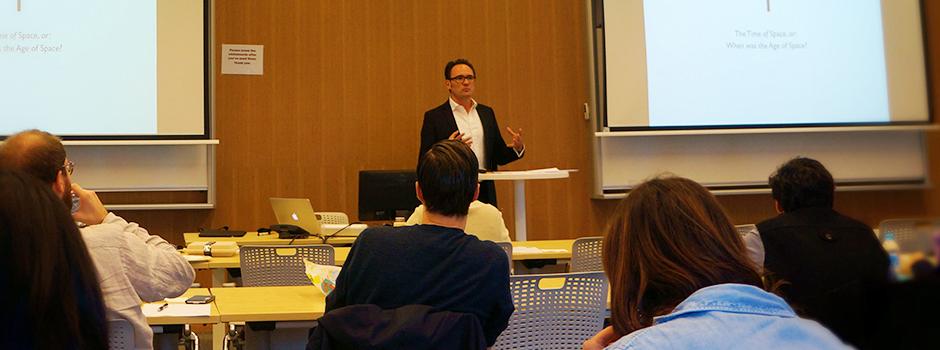“How can time be historicized?” asked Associate Professor of European History, Alexander C.T. Geppert. Is it truly a dimension measured only within in the mind? What about time onboard spacecraft? How universal is time?
These were some of the questions addressed at the November 25 FLSS talk, "Time in the Age of Space, 1942–1972" -- a talk that examined the continual exploration of outer space and its imaginary colonization in science and fiction. Throughout the 20th century, this has led to a new understanding of the space-time continuum.
The space historian analyzed the temporal dimension of the Age of Space, arguing that its appeal lay in the total control over the fourth dimension envisioned for the future. The boundlessness of technological advancement gave space exploration symbolic value; the idea of expanding geographic conquests propelled mankind into uncharted realms towards immortality.

Geppert spoke of a unifying idealism where even world peace seemed achievable on the back of a photon rocket hurled into a timeless distance between Earth and all of the unknown.
While the physical space surrounding planet Earth was conceptualized ever more precisely, the encounter with the immensity of time has provoked less resonance.
The end of the Age of Space, Geppert concluded, is when “space loses its complete centrality and the promises made about space are no longer believed.”


